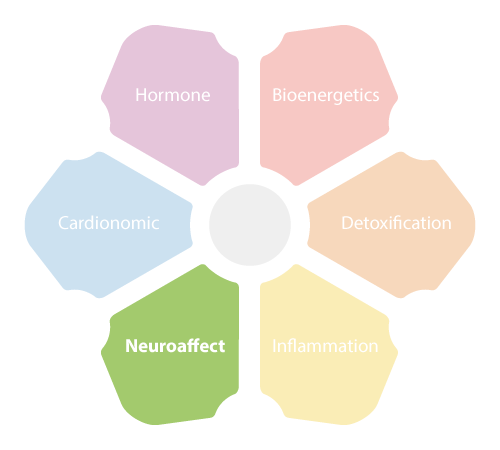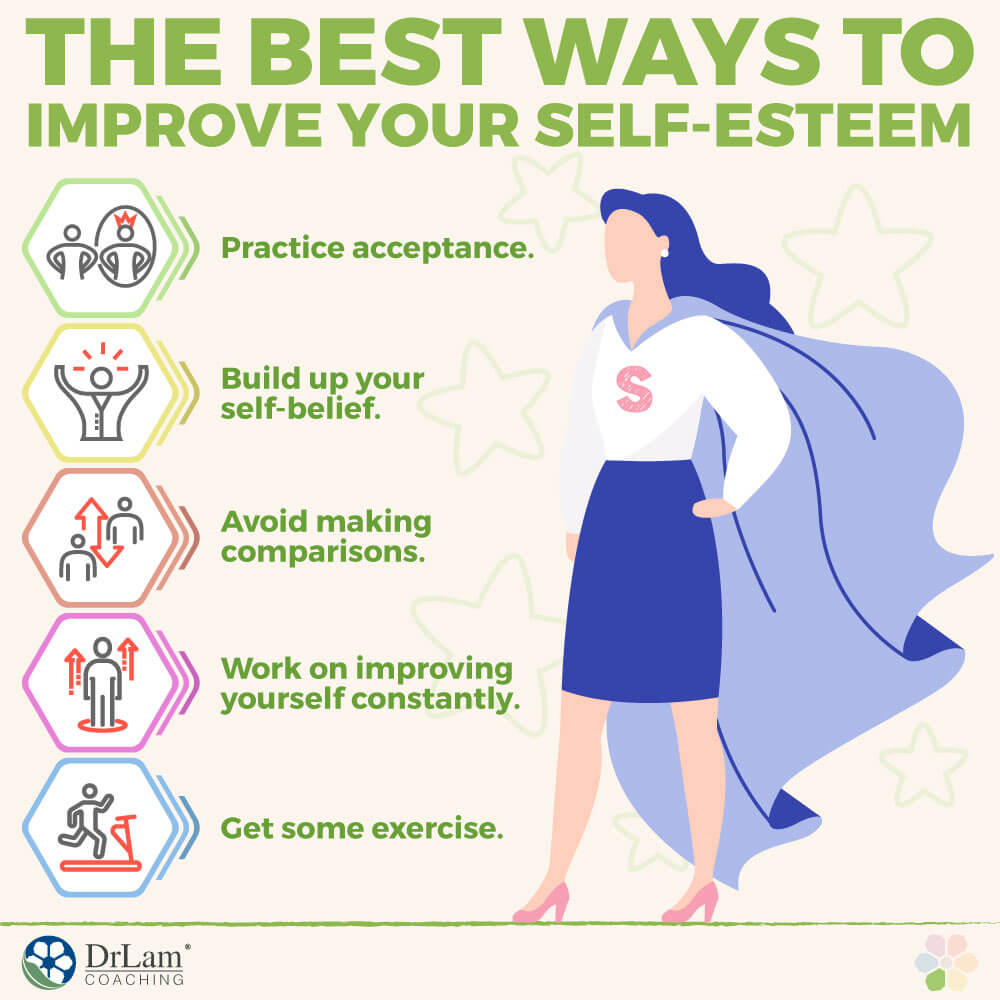 You experience all kinds of emotions in life, and many can be triggered by the people in your social circle. Sometimes, these interactions are negative and, in turn, you end up feeling bad about yourself. However, these painful emotions and loss of self-esteem aren’t just in your head. They can influence how your body handles stress, and low self-esteem can make everyday problems worse. Yet if you find a way to change your perspective of yourself, you can improve your self-esteem, reset your internal balance, and become more capable of dealing with stressful situations. This, in turn, can set you up for a much happier life.
You experience all kinds of emotions in life, and many can be triggered by the people in your social circle. Sometimes, these interactions are negative and, in turn, you end up feeling bad about yourself. However, these painful emotions and loss of self-esteem aren’t just in your head. They can influence how your body handles stress, and low self-esteem can make everyday problems worse. Yet if you find a way to change your perspective of yourself, you can improve your self-esteem, reset your internal balance, and become more capable of dealing with stressful situations. This, in turn, can set you up for a much happier life.
As you go through life, you have many different social interactions. You meet many different people while you are in school and interact with new teachers and peers. After this, you meet a different group of people once you begin working. You may pursue intimate relationships and meet a variety of new neighbors as you move to different homes. All of these interactions, along with the ones you regularly have with your family, can affect how you view yourself. At the same time, it can also affect your self-confidence and behavior.
In fact, a study from Lund University found a direct correlation between high social status and relatively higher levels of total self-esteem. High social status also led to better psychological well-being, physical abilities, and relations with one’s family. In addition, one study from Portugal found that peers can directly influence risk behaviors among adolescents. A negative influence increased possible involvement in risky behaviors, while a positive influence led to safer behaviors.
When your social circle views you negatively, you also tend to view yourself negatively. And when this happens, you lose confidence in yourself and in your ability to respond to stressful situations. Studies have corroborated that when you have less self-esteem, you have a decreased ability to handle stress. This is alarming, considering that stress is capable of wreaking havoc on your emotions, mood, and overall health.
 The moment you face a stressful situation, the NeuroEndoMetabolic (NEM) Stress Response system in your body becomes activated. This NEM stress response system is made up of six circuits that describe how your organs and systems interact: the Hormone, Bioenergetics, Neuroaffect, Inflammation, Cardionomic, and Detoxification circuits.
The moment you face a stressful situation, the NeuroEndoMetabolic (NEM) Stress Response system in your body becomes activated. This NEM stress response system is made up of six circuits that describe how your organs and systems interact: the Hormone, Bioenergetics, Neuroaffect, Inflammation, Cardionomic, and Detoxification circuits.
In the Neuroaffect circuit, response to stress is done by the central nervous system (CNS), the autonomic nervous system (ANS), and the gastrointestinal tract (GI). All of these systems typically rely on neurotransmitters to regulate your emotions, moods, and body. Most of these neurotransmitters are produced in the gut. This is why the gut can also be referred to as the second brain.
Once the stressful episode has passed, all the body systems, including those in the Neuroaffect circuit, return to normal function. However, when a person suffers from low self-esteem, stress tends to persist. At least one study by Syracuse University found that low self-esteem resulted in participants experiencing greater severity of stress.
When there is continuous stress in the body, a person eventually develops inflammation in the gut. When this happens, the low-grade inflammation can increase the permeability of the gut lining. And as a result, toxins can enter the body. Even worse, these toxins eventually cause a depression in the CNS.
In addition, stress can affect the gray matter volume in the CNS of the brain. A Japanese study found that stress can lead to a greater risk of reduced gray matter volume. This finding is critical considering that a reduction in gray matter volume in the brain can lead to an inability to regulate both stress and emotion.
Inflammation in the gut also affects the gut’s ability to produce neurotransmitters. Because of this, the ability of the Neuroaffect circuit to cope with stress is further hindered. Without enough neurotransmitters to regulate the body, this circuit becomes overworked.
Due to continuous stress from within, the rest of the circuits in the NEM stress response system also begin to suffer. In the Hormone circuit, the adrenal glands that are responsible for producing the primary stress hormone cortisol also become overworked. This means it becomes unable to produce enough cortisol for the body’s needs. Aside from dealing with stress, cortisol is also responsible for regulating inflammation in the body. And with decreased cortisol, the inflammation in the gut run rampant. Meanwhile, the body starts to suffer from hormonal imbalance. And when this happens, you suffer from Adrenal Fatigue Syndrome (AFS).

Remember, stress can arise as a result of your interactions with your family, friends or society at large. And when you approach these interactions with low self-esteem, you become more vulnerable to social and peer pressure. This, in turn, can cause an internal struggle in yourself, which triggers stress. And when you allow stress to worsen, it can trigger adrenal fatigue in your body. And adrenal fatigue can itself lead to emotionally negative symptoms such as anxiety, mood swings, and even depression.
 The best way to stop this from occurring is to find effective ways to change your perspective on yourself. This is something that you can work at, on your own. However, if you feel like you need some help, it is also a good idea to consult with a qualified healthcare practitioner such as a social therapist, psychologist, or a certified health care life coach.
The best way to stop this from occurring is to find effective ways to change your perspective on yourself. This is something that you can work at, on your own. However, if you feel like you need some help, it is also a good idea to consult with a qualified healthcare practitioner such as a social therapist, psychologist, or a certified health care life coach.
That said, here are some ways to improve your perspective of yourself and, ultimately, your self-esteem:
To bring your confidence levels up, you need to develop a complete acceptance of yourself. Learn to embrace your individuality. Each person is different, and you are interesting in your own way. Discover what makes you unique and celebrate that.
When you change your perspective of yourself, you take the time to realize and acknowledge your positive qualities. If it helps, write down a list of all your positive traits and skills. Read them back to yourself and you will realize that you are a more capable individual than you may have originally thought.
Engage in some inner dialogue and self-talk as well. Remind yourself regularly that you are an amazing individual. This also goes a long way towards building up your self-confidence.
Celebrating your individuality means refusing to compare yourself with others. You may not realize it, but comparisons can be quite a destructive habit. You are good just the way you are, and other people have things going on in their lives you know nothing about. Ultimately, how they live is none of your business.
There is nothing better than constant improvement to boost your self-esteem. Go ahead and further your knowledge and skill set. Take workshops. Join trainings that you are interested in. Practice developing a growth mindset. You owe it to yourself to improve as you age.
Engaging in some physical exercise can also help improve your perspective of yourself and lead to higher levels of self-esteem. In fact, a 2000 study found that regular physical activity leads to self-confidence. Exercise boosts feel-good chemicals, helps balance your hormones and neurotransmitters, and improves how capable you feel in your body. When you actively work to improve your physique, you also feel better about how you present yourself to people around you.
 Taking steps to change your perspective of yourself can help you become a more confident and positive individual. It improves your moods and emotions and helps you cope with stressful situations in a healthier manner, helping you avoid adrenal fatigue. When you change your perspective and your self-esteem for the better, you are showing that you are capable of loving yourself more. And by caring for yourself, you become your own best advocate in improving your health and happiness.
Taking steps to change your perspective of yourself can help you become a more confident and positive individual. It improves your moods and emotions and helps you cope with stressful situations in a healthier manner, helping you avoid adrenal fatigue. When you change your perspective and your self-esteem for the better, you are showing that you are capable of loving yourself more. And by caring for yourself, you become your own best advocate in improving your health and happiness.
© Copyright 2020 Michael Lam, M.D. All Rights Reserved.
When you change your perspective of yourself, you essentially bring in more positivity into your life. And because you now feel better about yourself, you also experience an increase in your confidence levels. This is crucial, since more confidence can help you respond to stress in a healthier manner.
